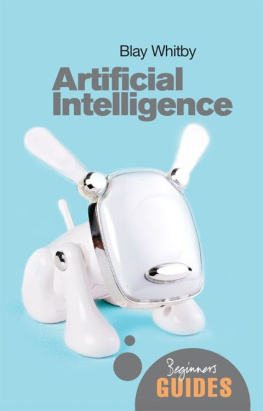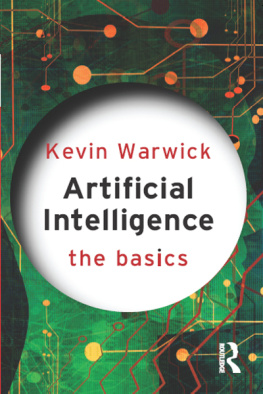The LITTLE BOOK
of ARTIFICIAL
INTELLIGENCE
Harry Katzan Jr.

THE LITTLE BOOK OF ARTIFICIAL INTELLIGENCE
Copyright 2021 Harry Katzan Jr.
All rights reserved. No part of this book may be used or reproduced by any means, graphic, electronic, or mechanical, including photocopying, recording, taping or by any information storage retrieval system without the written permission of the author except in the case of brief quotations embodied in critical articles and reviews.
iUniverse
1663 Liberty Drive
Bloomington, IN 47403
www.iuniverse.com
844-349-9409
Because of the dynamic nature of the Internet, any web addresses or links contained in this book may have changed since publication and may no longer be valid. The views expressed in this work are solely those of the author and do not necessarily reflect the views of the publisher, and the publisher hereby disclaims any responsibility for them.
Any people depicted in stock imagery provided by Getty Images are models, and such images are being used for illustrative purposes only.
Certain stock imagery Getty Images.
ISBN: 978-1-6632-3116-1 (sc)
ISBN: 978-1-6632-3117-8 (hc)
ISBN: 978-1-6632-3118-5 (e)
Library of Congress Control Number: 2021922342
iUniverse rev. date: 10/29/2021
CONTENTS
For Margaret, as always
INTRODUCTION
The question, Can a machine think? is one that has been debated for some time now and the question is not likely to be answered in this book. However, the subject is fruitful when considering what a computer can do.
There are various opinions on the subject. Some say that thinking is an activity that is peculiar to human beings. Accordingly, machines cannot think. Although thought as something unique to humans may have been in the minds of early philosophers when they first considered the subject of thinking and intelligence, this does not really define the activity. Others maintain that a machine is thinking when it is performing activities that normally require thought when performed by human beings. Thus, adding 2+3 must be a form of thinking. To continue, some psychologists have defined have defined intelligence in the following simple way: intelligence is what an intelligence test measures. In light of the preceding section on information systems, all that needs to be done is to feed enough information into an information system and to develop an appropriate query language, and the result is an intelligent machine. This line of reasoning also skirts a clear definition. Perhaps, it is a waste of time to worry about precise definitions, but the fact remains that computers are doing some amazing things - such as playing chess, guiding robots, controlling space vehicles, recognizing patterns, proving theorems, and answering questions - and that these applications require much more than the conventional computer program. Richard Hamming, developer of the prestigious Hamming code for error detection and correction in computers, gives a definition of intelligent behavior that may be useful here:
The ability to act in subtle ways when presented with a class of situations that have not been exhaustively analyzed in advance, but which require rather different combinations of responses if the result in many specific cases is to be acceptable.
Artificial Intelligence is an important subject because it may indicate the direction in which society is moving. Currently, machines are used for two reasons: (1) The job cannot be done by a human being, and (2) The job can be performed more economically by a machine. To this list, another reason must be added: some jobs are simply too dull to be d one by humans, and it is desirable from a social point of view to have such jobs done by machine. This requires a greater number of intelligent machines, since people seem to be finding more and more work they consider to be dull and routine.
Here are two items of before you get started with the book:
Artificial general intelligence (AGI) is the intelligence of a machine that could successfully perform any intellectual task that a human being can. It is a primary goal of some AI research and is a common topic in science fiction and future studies. (Author unknown.)
The singularity is the hypothesis that the invention of artificial super intelligence (ASI ) will abruptly trigger runaway technical growth, resulting in unfathomable change to human civilization. (Author unknown,)
The Author
October 25, 2021
Chapter 1
Principia Cybernetica,
Metaphysics, and Alan Turing
More will be said about Artificial Intelligence in ensuing pages, but the notion that a computer and appropriate software can emulate human thought is indeed an intriguing concept. By the way, a computer is sometimes regarded as hardware, and software are the programs that run on a hardware device. Engineers design and build hardware and computer programmers write software. Most adults and practically all students know about computer technology these days. Computers do things for people through the use of software that can be purchased or developed on an ad hoc basis. Software is normally regarded as programs or special programs often referred to as apps. On smaller devices, such as smartphones, some software comes with the device and apps can be purchased to do a variety of thing, such as ordering plane tickets and sending messages to other people. Modern computer technology is quite sophisticated and most people, who can write and construct programs, actually purchase the software or apps, as mentioned.
Introduction
Computers are usually networked together in order to exchange information and the worldwide system to provide that service is known as the Internet. As a common example of the use of the Internet is that if you want to find out about your daughters boy friend, you can usually look him up on the Internet. In general, both people and businesses, including schools, nowadays use computers to communicate. There are, on general, two forms of communication: messaging and electronic mail. They are different and the distinction is important. Messages that are usually regarded as relatively small chunks of information that use the cellular system, and are exchanged immediately. Electronic mail is totally and completely different. Electronic mail documents are constructed using sophisticated software that allows mail to be constructed and sent to the recipient and stored. At a later day and time, the receiver calls for his or her electronic mail, and it is delivered to a computer or workstation. Electronic mail is stored on both ends of a communication cycle.
Many people regard communications using computers as being quite intelligent, because that is what most people do in everyday life. If you do not know how messaging and electronic mail work, for example, then you might think it is quite intelligent. But, if you know how it works, then it doesnt appear to be so intelligent. To many people, the distinction is simple. If you know how it works, then it isnt intelligent. At the other extreme, if a computer program can figure out what to do, and then does it, then it is intelligent, this is where principia cybernetica, metaphysics, and Alan Turing come into the picture.
Principia Cybernetica
Principia Cybernetica, known as PCP, is an online knowledge system intended to explore the nature of intelligence. What other discipline could be more appropriate to an introductory book on artificial intelligence? The primary players in the PCP system are the following people at the University of Belgium: Joslyn, Heylighen, and Turchin. Of course, there are other people but these are the main contributors.
Next page
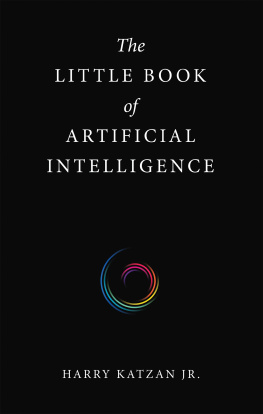
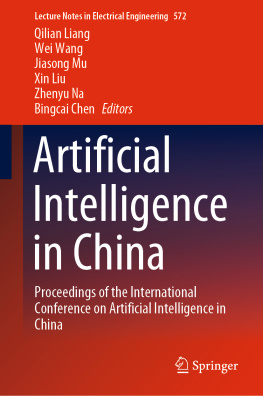
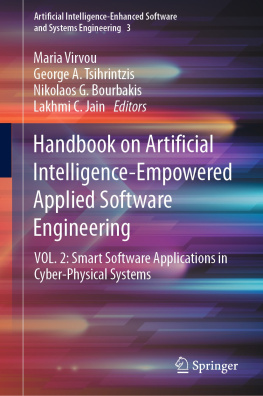

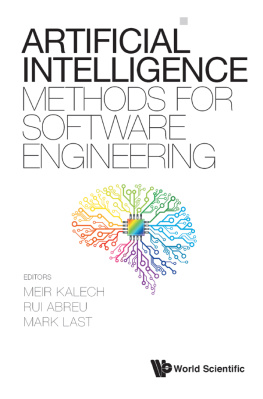
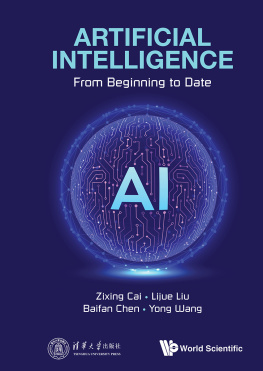
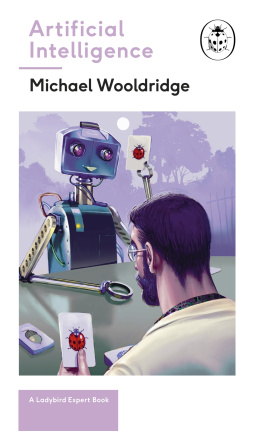
![Jim Sterne [Jim Sterne] - Artificial Intelligence for Marketing](/uploads/posts/book/124040/thumbs/jim-sterne-jim-sterne-artificial-intelligence.jpg)
